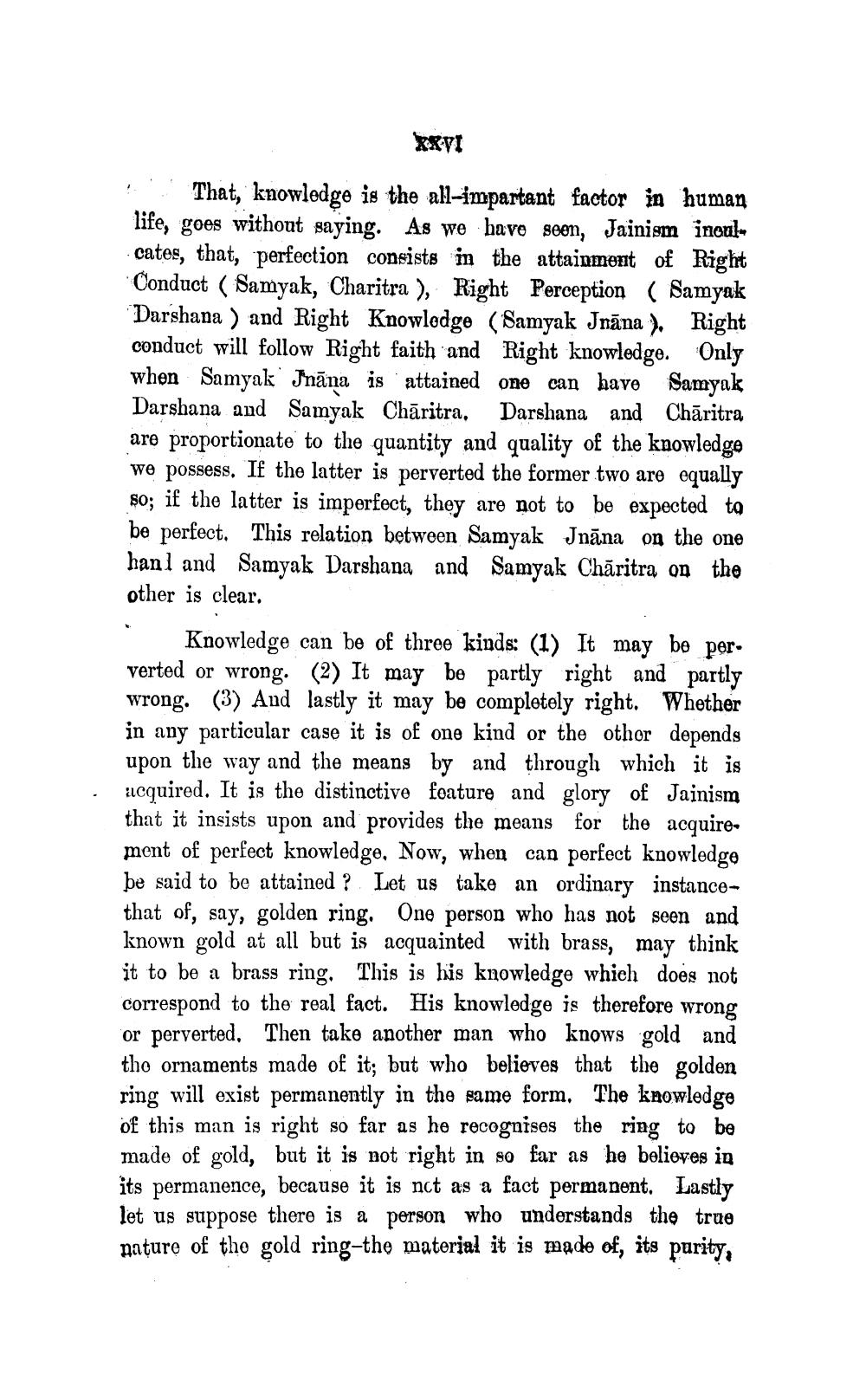________________
XXVI
That, knowledge is the all-impartant factor in human life, goes without saying. As we have seon, Jainism inonl. cates, that, perfection consists in the attainment of Right Conduct ( Samyak, Charitra ), Right Perception (Samyak Darshana ) and Right Knowledge (Samyak Jnāna ), Right conduct will follow Right faith and Right knowledge. Only when Samyak Jnāna is attained one can have Samyak Darshana and Samyak Chāritra. Darshana and Chāritra are proportionate to the quantity and quality of the knowledge we possess. If the latter is perverted the former two are equally $o; if the latter is imperfect, they are not to be expected to be perfect. This relation between Samyak Jnāna on the one hanl and Samyak Darshana and Samyak Charitra on the other is clear.
Knowledge can be of three kinds: (1) It may be per. verted or wrong. (2) It may be partly right and partly wrong. (3) And lastly it may be completely right. Whether in any particular case it is of one kind or the other depends upon the way and the means by and through which it is acquired. It is the distinctive feature and glory of Jainism that it insists upon and provides the means for the acquirement of perfect knowledge. Now, when can perfect knowledge be said to be attained ? Let us take an ordinary instancethat of, say, golden ring. One person who has not seen and known gold at all but is acquainted with brass, may think it to be a brass ring. This is his knowledge which does not correspond to the real fact. His knowledge is therefore wrong or perverted. Then take another man who knows gold and tho ornaments made of it; but who believes that the golden ring will exist permanently in the same form. The knowledge of this man is right so far as he recognises the ring to be made of gold, but it is not right in so far as he believes in its permanence, because it is nct as a fact permanent. Lastly let us suppose there is a person who understands the true nature of the gold ring-the materiał it is made of, its purity,




